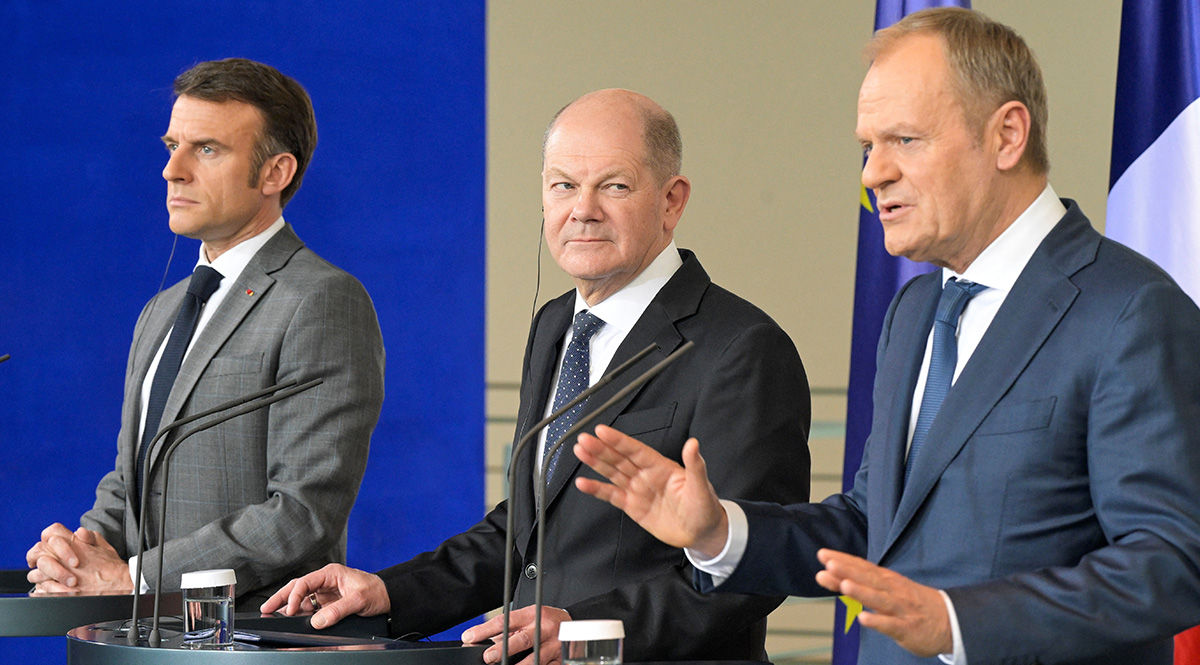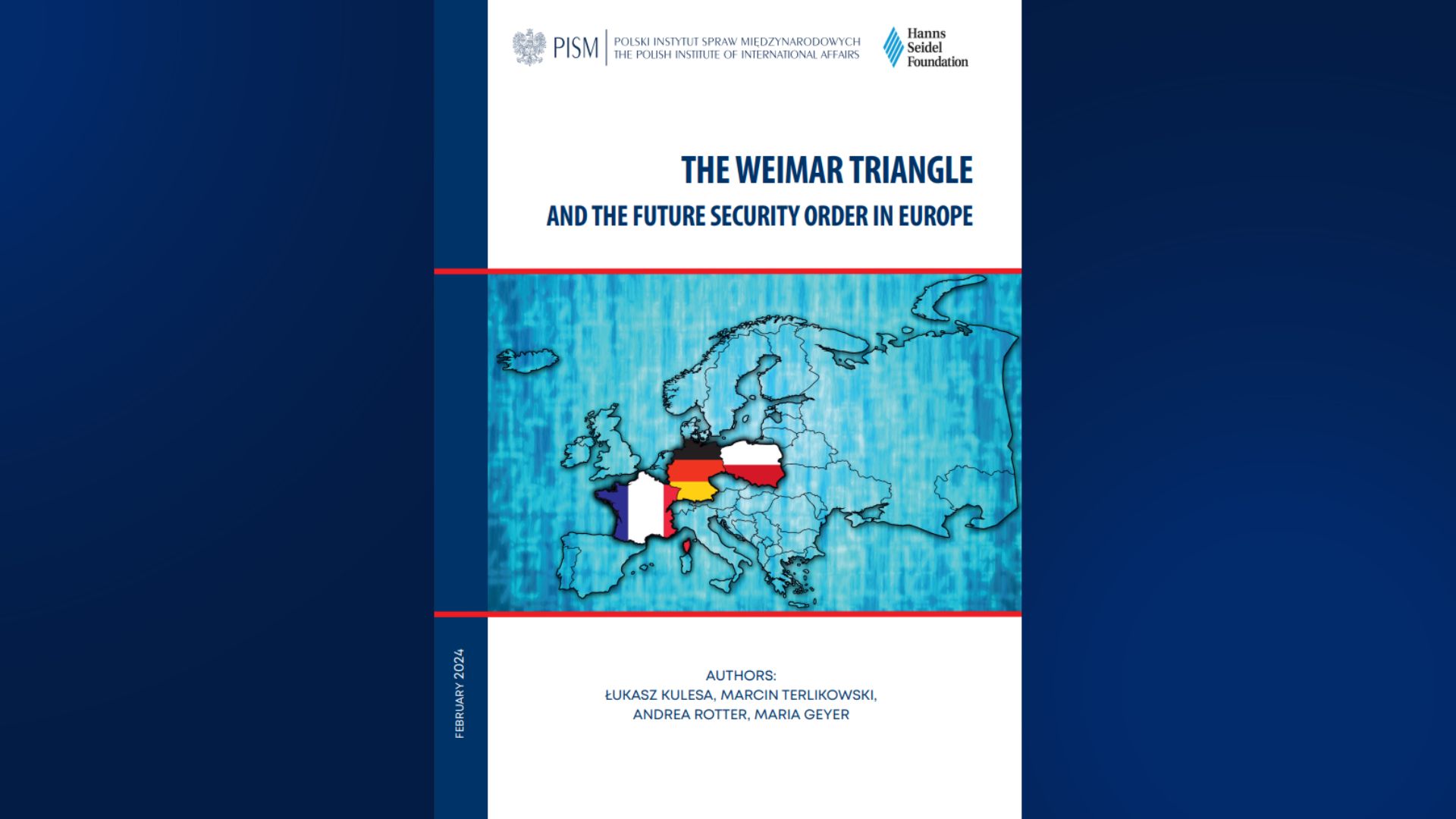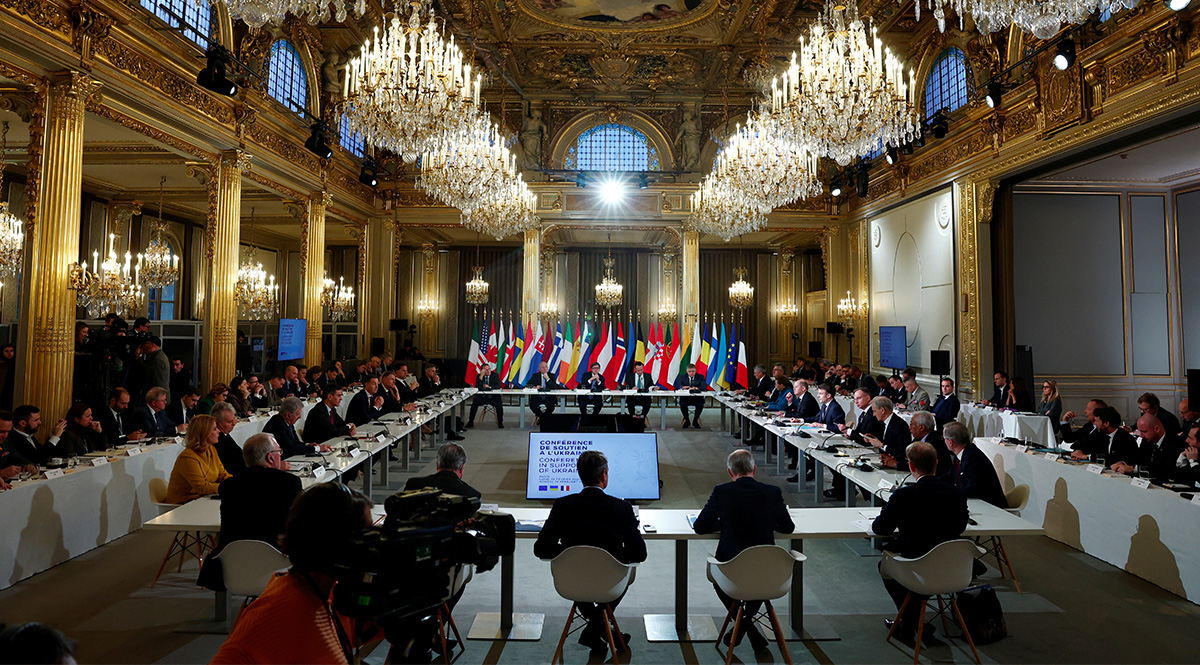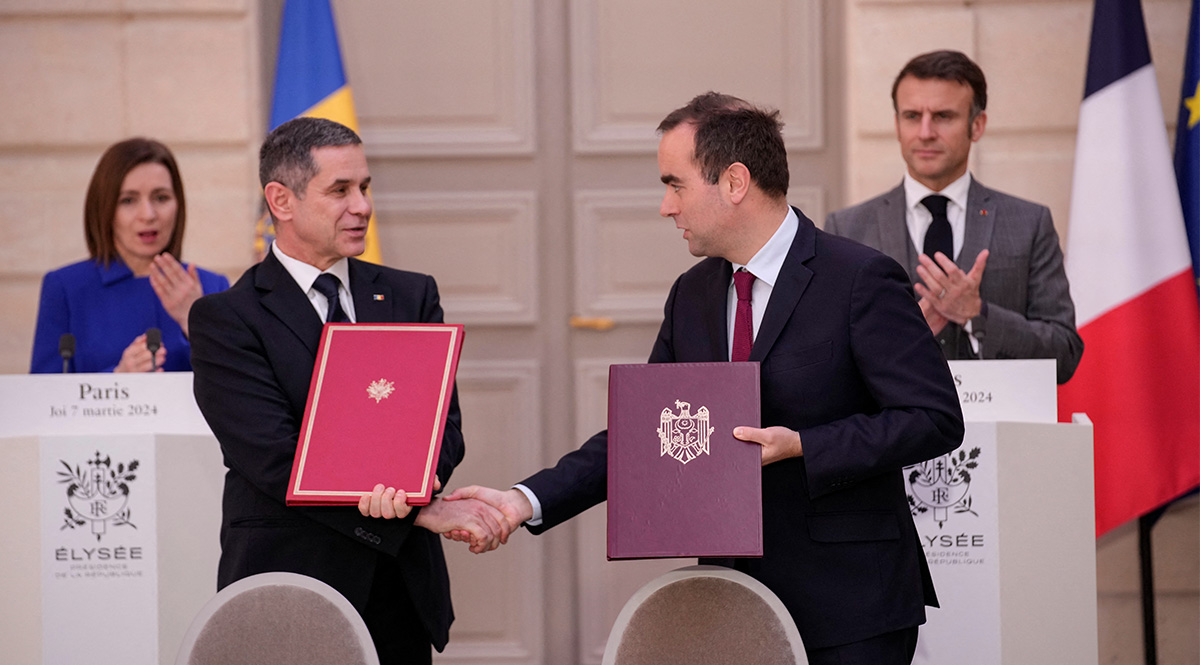Weimar Triangle Meets in Extraordinary Summit
On 15 March, at Poland’s request, an extraordinary summit of the Weimar Triangle was held in Berlin. Polish Prime Minister Donald Tusk, French President Emmanuel Macron, and German Chancellor Olaf Scholz confirmed their commitment to support Ukraine, as well as their intention to take new initiatives, such as building a coalition to provide long-range missile artillery capabilities. The meeting in Berlin confirmed political declarations to strengthen trilateral cooperation.
 Fabian Bimmer / Reuters / Forum
Fabian Bimmer / Reuters / Forum
What was the context and purpose of convening the extraordinary summit?
The Weimar Triangle summit was convened after the joint state visit of President Andrzej Duda and Prime Minister Donald Tusk to Washington. Just before the summit, a meeting was held between President Emmanuel Macron and Chancellor Olaf Scholz on the state of French-German relations. The talks between the leaders of Poland, France, and Germany were intended to confirm the convergence of positions on further actions related to the war in Ukraine and to accelerate the implementation of announced initiatives, including increasing ammunition supplies to Ukraine. The summit was also intended to help ease tensions between Macron and Scholz, which intensified after the conference on support for Ukraine organised in Paris on 26 February. Germany had reacted negatively to Macron’s words about not ruling out the possibility of sending military units from European countries to Ukraine, with the Germans fearing an escalation of the conflict. Germany, in turn, was criticised by its allies for refusing to provide Ukraine with long-range Taurus missiles, although Scholz emphasised that the country is also the largest European payer in terms of financial and military assistance to Ukraine, significantly exceeding France’s contribution to date.
What did the leaders agree on at the summit?
The arrangements for support of Ukraine by the leaders of Poland, France, and Germany are a continuation of the actions agreed upon during the conference in Paris, including building up the European defence industry. President Macron in Berlin confirmed his support for the Czech initiative to purchase ammunition for Ukraine on non-European markets with EU funds. After the Triangle summit, the leaders also declared actions to increase their country’s production of military equipment, including through cooperation with partners in Ukraine. As part of the so-called Ramstein format (Contact Group for the Defence of Ukraine, which regularly coordinates military assistance to the country) a new coalition of long-range rocket artillery capabilities is to be created. EU support will be strengthened under the European Peace Facility, which received €5 billion this year for further military support to Ukraine and strengthening the EU training mission. The leaders announced the use of “windfall” profits from Russian assets frozen in Europe to financially support the purchase of weapons for the Ukrainian Armed Forces. The issue of trade with Ukraine and support for Moldova was also discussed.
What are the current dynamics of and prospects for the Weimar Triangle?
The course of the Russian military operations in Ukraine and uncertainty of further involvement of the United States have brought the Triangle countries closer together to coordinate actions to strengthen European security and reduce Europe’s strategic dependence. During the meeting in Berlin, the leaders announced that the next summit would be in Poland at the beginning of this summer and emphasised a new opening in trilateral relations. This demonstrates the increased dynamics of tripartite consultations in recent months. In February this year, there was a meeting of Triangle foreign ministers—Radosław Sikorski (Poland), Stéphane Séjourné (France), and Annalena Baerbock (Germany). The representatives of Poland, France, and Germany expressed their willingness to strengthen European defence and arms cooperation, working together on financial and military support for Ukraine, and cooperation on EU sanctions policy towards Russia (implementation of new individual and sectoral sanctions) and actions to combat circumvention, as well as fighting cyberattacks and Russian disinformation. Ministers announced the creation of a Weimar warning-and-response programme on information manipulation and foreign interference. The Weimar format can also be a platform of support for EU enlargement policy, as well as other areas strengthening European sovereignty in health, critical raw materials, semiconductors, food security, and digital technologies. Strengthening exchange and social contacts between the citizens of these countries is also expected to provide a new impetus for trilateral cooperation.





